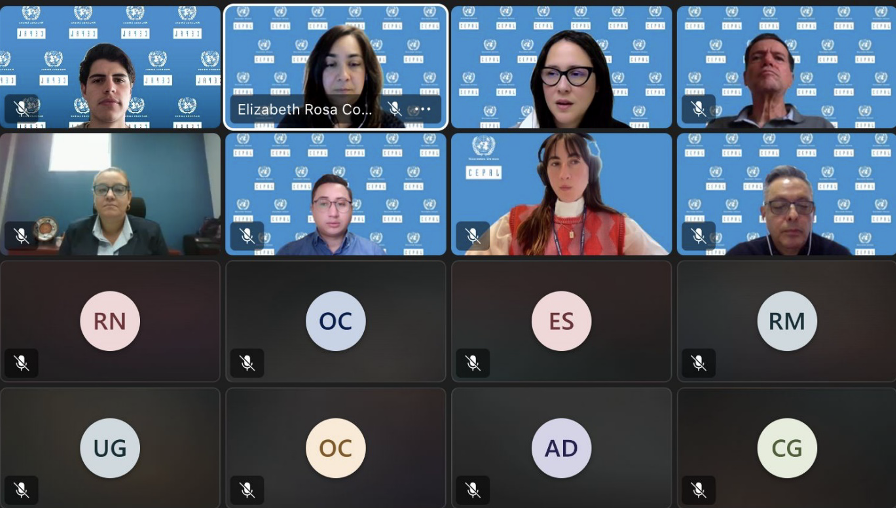ROSA: Tariff and Energy Efficiency Strategies for Water Sustainability in Panama (Session 3)
Work area(s)
Topic(s)
On September 26th, 2024, the third session of the webinar series: "Tariff and Energy Efficiency Strategies for Water Sustainability in Panama" was held within the framework of the Network and Observatory for Water Sustainability project (ROSA in Spanish), focusing on social tariffs. The event was attended by Silvia Saravia, Economic Affairs Officer at ECLAC, and Alfredo Montañez and Diego Fernández, both Senior Water Experts at ECLAC. During the session, policies and mechanisms were discussed to ensure that social tariffs allow the most vulnerable sectors to access drinking water and sanitation services without compromising financial sustainability.

The session focused on the concept of social tariffs, a mechanism aimed at guaranteeing access to drinking water and sanitation for low-income families. The types of subsidies that can be implemented were discussed, differentiating between supply-side subsidies, which are granted to companies to improve service, and demand-side subsidies, which are aimed directly at the most vulnerable users to reduce the cost of their bills. Diego Fernández, ECLAC´s Senior Water Expert, stressed the importance of ensuring that subsidies reach those who really need them, avoiding indiscriminate distribution.
A key focus of the session was the application of tariff blocks, where lower-income users receive subsidies for basic consumption, while those with greater ability to pay contribute cross-subsidies. In countries such as Chile, Colombia and Mexico, social tariff schemes have been implemented with varying degrees of success, and these cases served as a reference for discussing implementation in Panama. The challenge of designing tariffs that promote rational water use without burdening vulnerable families was highlighted, a balance necessary to achieve sustainability and equity.
In addition, the concept of the “vital minimum” was explored, a policy applied in cities such as Bogotá and Medellín that guarantees a basic amount of free water for the poorest households. This model was analyzed as a possible option for Panama, to ensure that no household is left without access to this essential resource.
The session ended with a call to improve tariff structures in Panama by implementing a more precise scheme for categorizing users and areas of vulnerability. This would allow for better targeting of subsidies, ensuring that the poorest households receive the necessary support. The importance of combining cross-subsidies and direct subsidies to ensure that service costs are distributed fairly was also emphasized, along with the possibility of adopting a “vital minimum” program.
Related content

ROSA: Tariff and Energy Efficiency Strategies for Water Sustainability in Panama (Session 2)
The second session of the webinar series: "Tariff and Energy Efficiency Strategies for Water Sustainability in Panama" within the framework of the Network and Observatory for Water Sustainability…

Tariff and Energy Efficiency Strategies for Water Sustainability in Panama: First Seminar
The Webinar, organized by ECLAC on September 3, 2024, aimed to provide key stakeholders in the water and sanitation sector in Panama with the necessary tools and knowledge to develop a sustainable…